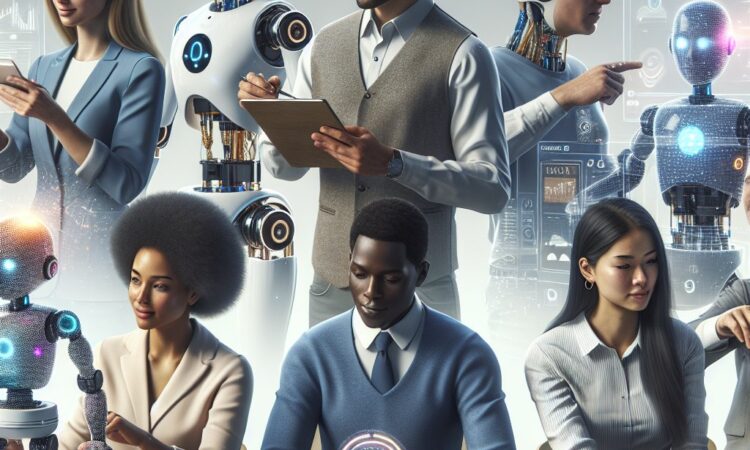The Evolving Landscape of Artificial Intelligence (AI)
Artificial intelligence (AI) is rapidly transforming industries and reshaping the future of work. Businesses are increasingly adopting AI technologies to automate tasks, improve decision-making, and gain a competitive edge.
AI’s Impact on Automation
AI is automating a wide range of tasks, from data entry and customer service to manufacturing and logistics. This automation is freeing up human workers to focus on more creative and strategic activities.
For example, AI-powered chatbots are now being used to answer customer questions and resolve issues, while AI-powered robots are being used to assemble products and package shipments.
AI’s Impact on Decision-Making
AI is also being used to improve decision-making in a variety of industries. AI algorithms can analyze vast amounts of data to identify patterns and trends that would be difficult or impossible for humans to see.
For example, AI is being used to diagnose diseases, predict customer behavior, and make investment decisions.
AI’s Impact on the Workforce
The increasing adoption of AI is having a significant impact on the workforce. Some jobs are being automated, while others are being redefined.
Workers will need to upskill and reskill to adapt to the changing demands of the workplace. They will need to develop new skills in areas such as data analysis, machine learning, and artificial intelligence.
The Future of AI
AI is still in its early stages of development, but it is already having a profound impact on our lives. As AI technology continues to advance, we can expect to see even more transformative changes in the years to come.
Image Description for the Post
An image that captures the essence of AI’s impact on the future of work. It could show a group of people working together with AI-powered robots, or a person using an AI-powered device to make a decision.

